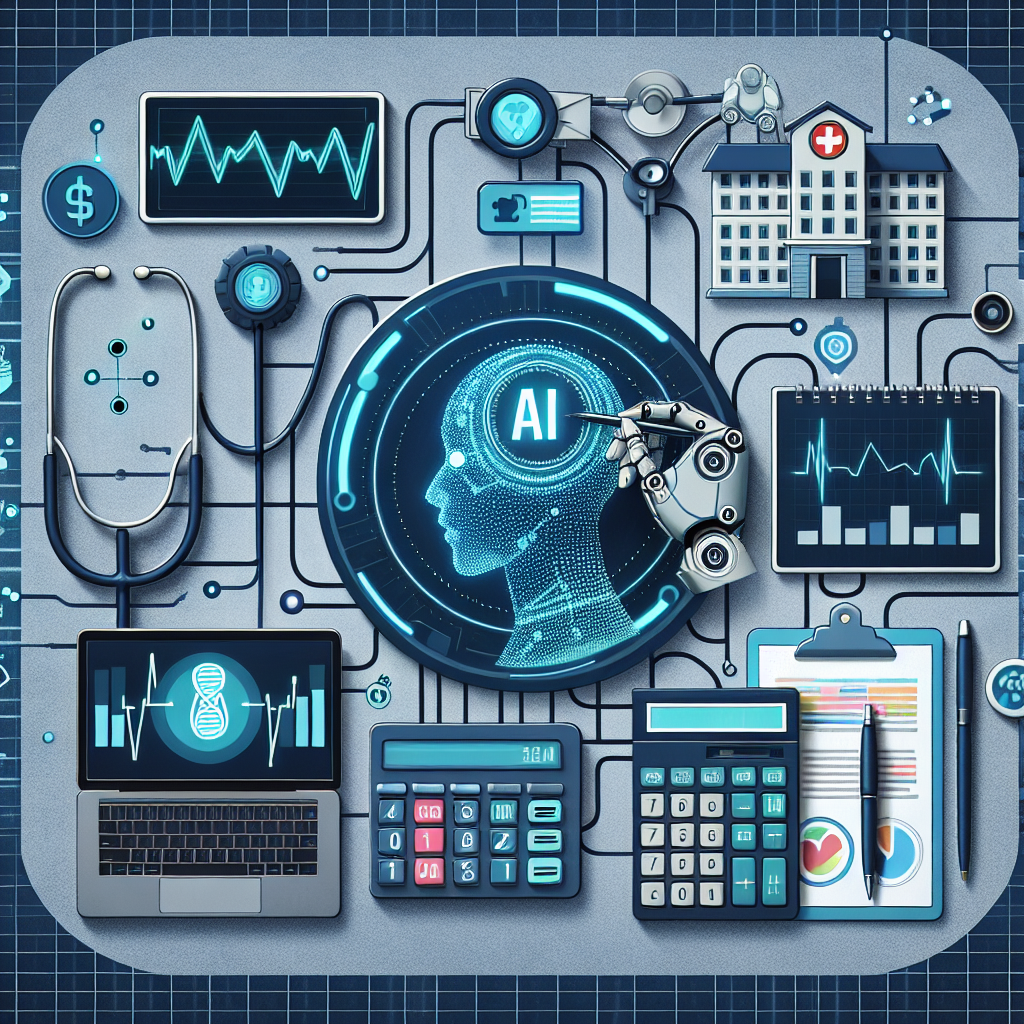The use of artificial intelligence (AI) in healthcare revenue management is revolutionizing the way healthcare organizations handle their financial operations. From billing and coding to claims processing and payment collections, AI technology is streamlining processes, increasing efficiency, and improving revenue outcomes for healthcare providers.
AI in healthcare revenue management involves the use of advanced algorithms and machine learning techniques to automate and optimize financial processes. By analyzing large amounts of data, AI systems can identify patterns, trends, and anomalies to help healthcare organizations make more informed decisions and improve their revenue cycle management.
One of the key areas where AI is making a significant impact in healthcare revenue management is in claims processing. Traditionally, claims processing has been a time-consuming and labor-intensive task that involves a lot of manual data entry and validation. AI technology can automate this process by using natural language processing (NLP) algorithms to extract information from medical records and other documents, and then submitting claims to payers electronically. This not only speeds up the claims processing time but also reduces the risk of errors and rejections.
AI can also help healthcare organizations improve their revenue outcomes by optimizing coding and billing processes. By analyzing historical data and identifying patterns in coding practices, AI systems can suggest more accurate codes for medical procedures and diagnoses, leading to higher reimbursement rates and fewer denials. AI can also help identify billing errors and compliance issues, reducing the risk of audits and penalties.
Another area where AI is transforming healthcare revenue management is in payment collections. AI-powered systems can analyze patient data and payment history to predict which patients are more likely to default on their payments. This allows healthcare organizations to prioritize collections efforts, tailor payment plans to individual patients’ financial situations, and increase overall collection rates.
In addition to improving revenue outcomes, AI in healthcare revenue management can also help healthcare organizations reduce costs and improve operational efficiency. By automating repetitive tasks and streamlining processes, AI technology can free up staff to focus on more strategic initiatives and provide better patient care. AI can also help identify inefficiencies in revenue cycle management processes and suggest ways to optimize them, leading to cost savings and improved financial performance.
Overall, the use of AI in healthcare revenue management is helping healthcare organizations navigate the complex and rapidly changing healthcare landscape. By leveraging the power of AI technology, healthcare providers can improve their revenue outcomes, reduce costs, and provide better care to their patients.
FAQs:
Q: How can AI help healthcare organizations improve their revenue outcomes?
A: AI can help healthcare organizations improve their revenue outcomes by optimizing claims processing, coding and billing, and payment collections processes. By automating repetitive tasks, identifying patterns and trends in data, and predicting patient behavior, AI technology can help healthcare providers increase reimbursement rates, reduce denials, and improve collection rates.
Q: What are some of the challenges of implementing AI in healthcare revenue management?
A: Some of the challenges of implementing AI in healthcare revenue management include data privacy and security concerns, regulatory compliance issues, and the need for staff training and education. Healthcare organizations need to ensure that they have the proper infrastructure and protocols in place to protect patient data and comply with regulations while also providing staff with the necessary skills and knowledge to effectively use AI technology.
Q: How can healthcare organizations measure the ROI of AI in revenue management?
A: Healthcare organizations can measure the ROI of AI in revenue management by tracking key performance indicators such as reimbursement rates, denials rates, collection rates, and operational efficiency metrics. By comparing these metrics before and after implementing AI technology, healthcare providers can assess the impact of AI on their revenue outcomes and determine the return on investment.
Q: What are some best practices for implementing AI in healthcare revenue management?
A: Some best practices for implementing AI in healthcare revenue management include conducting a thorough assessment of current processes and identifying areas where AI technology can add value, involving key stakeholders in the decision-making process, ensuring data quality and integrity, and monitoring performance metrics to track the impact of AI on revenue outcomes. Additionally, healthcare organizations should continuously evaluate and optimize their AI systems to ensure they are delivering the expected results.

